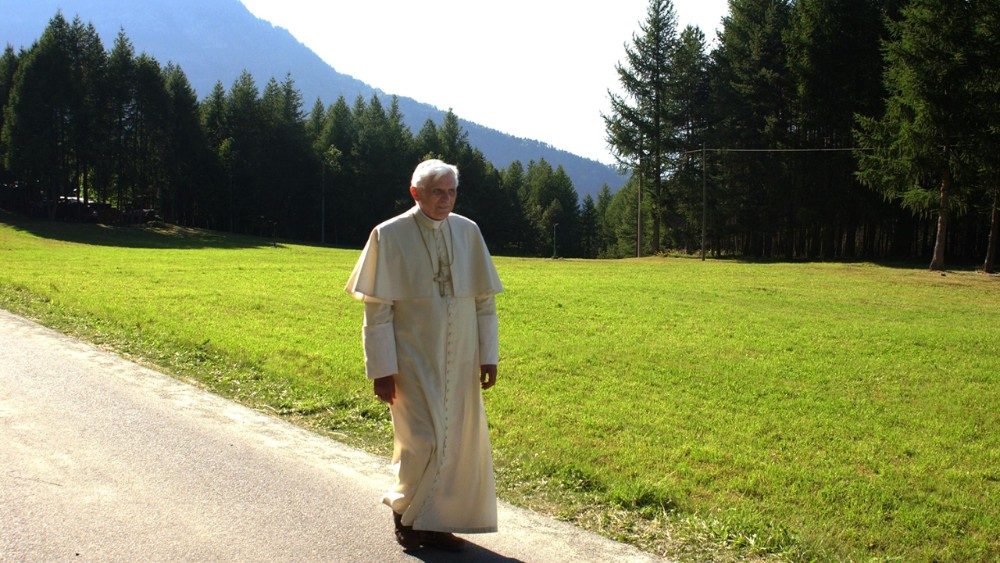The summer months are a time of holiday for many families. Going to the beach, picnics in the park, camping. We find many ways to refresh ourselves and renew our relationships with family and friends through our contact with the beauty of the natural world.
This is the way it should be. Because this is the way we are made. In God’s loving design, there is meant to be an intimate bond of communion that unites us to the world of creation.
In Pope Benedict XVI’s words, there is a divine “covenant between human beings and the environment, which should mirror the creative love of God — from whom we come and toward whom we are journeying.”
As we know, the human relationship with the environment has become one of the most urgent issues of our time.
This is the reason for our Archdiocesan Creation Sustainability Ministry, which seeks to promote our stewardship and to address environmental issues affecting our most vulnerable brothers and sisters. In “The Environment,” (Our Sunday Visitor, $15), an excellent new collection of his writings and addresses on this issue, Pope Benedict reminds us of the deep connections between environmental issues and broader questions of peace, justice and human rights in our time.
He writes: “Can we remain indifferent before … such realities as climate change, desertification, the deterioration and loss of productivity in vast agricultural areas, the pollution of rivers and aquifers, the loss of biodiversity, the increase of natural catastrophes and the deforestation of equatorial and tropical regions? … Can we remain impassive in the face of actual and potential conflicts involving access to natural resources? All these are issues with a profound impact on the exercise of human rights, such as the right to life, food, health and development.”
Catholic social doctrine doesn’t offer technical solutions to any of these issues. But reading this new book, we can see how the Church’s wisdom can help our society steer a rational course between the extremes that so often dictate the terms of today’s debates.
The pope rejects what he calls “econocentrism” and the “purely consumerist mentality.” This mentality treats the natural world as only a source of raw materials to be exploited for short-term economic gains or for the selfish lifestyles of powerful groups.
In God’s loving design, there is meant to be an intimate bond of communion that unites us to the world of creation.
Our Holy Father proposes a beautiful vision of “profound cultural renewal.” He calls us to live with a greater concern for beauty, truth and communion with others.
“Life is stewardship of the goods received from God,” the pope says. He asks us to create a global economy based on the “logic of sharing” and serving others. In God’s plan, he reminds us, the earth’s goods are meant not only for the few but for everyone.
We need a new sense of “intergenerational solidarity,” according to the pope. Each of us needs to assume a personal duty to “protect God’s creation and to bequeath to future generations a world in which they will be able to live.” Yet in our legitimate environmental concern, the Holy Father warns us against “absolutizing nature.”
We can see what he calls “biocentrism” in many of today’s activist groups. In the name of protecting the earth, these activists argue that the human person is no greater than any other living species and that nature is “an untouchable taboo.” Our Holy Father reminds us that in God’s loving plan, the human person is of “supreme worth” and “represents all that is most noble in the universe.”
He insists that we not forget the vital link between the ecology of the natural world and “the human ecology.” And he is right: Our society will never respect the sanctity of nature until we create a culture in which the sanctity of the human person is respected.
As Pope Benedict writes: “If there is a lack of respect for the right to life and to a natural death, if human conception, gestation and birth are made artificial, if human embryos are sacrificed to research, the conscience of society ends up losing the concept of human ecology and, along with it, that of environmental ecology. … The book of nature is one and indivisible. It takes in not only the environment but also life, sexuality, marriage, the family, social relations: in a word, integral human development. Our duties towards the environment are linked to our duties towards the human person, considered in himself and in relation to others.”
These are profound words to ponder as we pray for one another this week.
Let us ask Mary our Blessed Mother, who bore in her womb the first-born of all creation, to give us a greater sense of this “book of nature.” May we come to find in nature, and in our brothers and sisters, a gift of beauty and a promise from our Creator.

